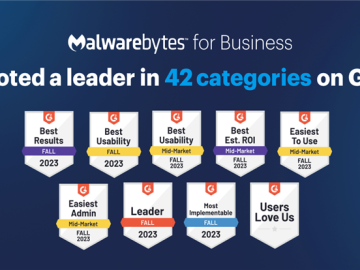The Securities and Exchange Commission (SEC) has announced rules around breaches for certain financial institutions—registered broker-dealers, investment companies, investment advisers, and transfer agents— that require them to have written incident response policies and procedures that can be used in the event of a breach.
The requirement is an adoption of amendments to Regulation S-P, which was enacted in 2000 to safeguard the financial information of consumers, requiring financial institutions to tell customers about how they use their personal information.
But things have changed drastically since 2000. Even in the four years between 2018 and 2022, complaints about identity theft more than doubled, per the FBI’s Internet Crime Complaint Center.
SEC Chair Gary Gensler said:
“Over the last 24 years, the nature, scale, and impact of data breaches has transformed substantially. These amendments to Regulation S-P will make critical updates to a rule first adopted in 2000 and help protect the privacy of customers’ financial data. “
Under these amendments, covered firms will be required to notify customers of breaches that might put their personal data at risk. This will give these customers the chance to prepare themselves for the negative consequences of a breach.
Covered organizations have to provide notice to victims as soon as possible and no later than 30 days after becoming aware of an incident involving the leak of customer information. Organizations must include details about the incident, the data leaked and what victims can do to protect themselves. As Gensler puts it:
“The basic idea for covered firms is if you’ve got a breach, then you’ve got to notify.”
The amendments will become effective 60 days after publication in the Federal Register. Larger entities will have 18 months after the date of publication in the Federal Register to comply with the amendments, and smaller entities will have 24 months after the date of publication in the Federal Register to comply.
Has your data been exposed?
If you want to find out how much of your data has been exposed online, you can try our free Digital Footprint scan. Fill in the email address you’re curious about (it’s best to submit the one you most frequently use) and we’ll send you a free report.
We don’t just report on threats – we help safeguard your entire digital identity
Cybersecurity risks should never spread beyond a headline. Protect your—and your family’s—personal information by using identity protection.




